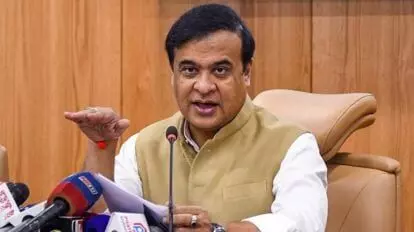Futile intervention

Assam’s Revenue and Disaster Management Minister, Jogen Mohan, introduced the Assam Compulsory Registration of Muslim Marriages and Divorces Bill, 2024, in the state assembly on Thursday—replacing the colonial-era Assam Moslem Marriages and Divorces Registration Act, 1935. The stated objectives are twofold—to curb the prevalence of child marriage in the state and, in the same process, eliminate the role of qazis in the registration process. However, the apprehension simmering below the surface is that the government might be gradually progressing towards implementing the Uniform Civil Code. As for now, Assam’s chief minister, Himanta Biswa Sarma, has his eyes set on the next target—ending polygamy through legal action.
While there could be no doubt that regressive practices like child marriage and polygamy should have no place in modern society, one cannot overlook the broader environment in which the actions are being taken. Himanta Biswa Sarma’s love for Muslims, particularly the Bengali-speaking faction, is not hidden to anyone! Apprehensions are that drastic shifts in laws can be used as a beating stick for the population that remains within the political radar of the ruling party. Legislations are never complete in themselves. Their outcomes, positive or otherwise, depend on the intent of the ruling class. The legal framework and policy intent, thus, need to be sanctified at the same time, without fail. However, despite apprehensions surrounding the (mis)use of the new legislation, the urgency of its stated objective cannot be undermined.
To begin with, child marriage is a serious problem plaguing the state. Assam’s minority underage marriage rate is reported to stand at 45.8 per cent—much higher than the national average of 26.4 per cent. Over the past couple of years, the Assam government has taken a proactive stance towards curbing the malpractice, and its efforts seem to have yielded results. An India Child Protection report has revealed that legal action has reduced instances of child marriages, showing an 81 per cent decrease in such cases across 20 districts in the state between 2021-22 and 2023-24. At the same time, the government’s approach also bears the semblance of anarchy and antagonism. In the last year’s crackdown on child marriages, of the overall arrested persons, 62 per cent were reported to be Muslims who constitute one-third of the total population.
The moot question is: where does the new Bill fit in the present scheme of things, and how long will it go towards checking the prevalence of child marriage in the state? And will it boomerang in any way? Experts have argued since the beginning that rather than repealing the entire Act, the more pragmatic way forward could have been to amend the specific Section which provides for marriage between underage children. Furthermore, the provisions of the Prohibition of Child Marriage Act, 2006 already stand as a check to the application of Section 8(1) of the 1935 Act. Since the matter could have been dealt with simpler provisions under existing laws, the entire idea of coming up with a new Bill seems futile.
The second sticking point in the new Bill appears still trickier. The government’s decision to do away with the agency of qazis, who serve as a vital component in Muslim marriages under the personal laws, is problematic. In line with Muslim customs and traditions, qazis form a crucial agency that gives the community a sense of autonomy in conducting marriages as per their faith. Introduction of government’s Marriage and Divorce Registrar as a replacement not only snatches away that sense of autonomy, but will also create a new set of procedural complexities that might backfire—nudging the marginalised sections of community to bypass the registration process altogether, and thus, leading to more child marriages instead. Ease of compliance is an essential component of implementation of laws. It may be noted that marginalised sections of Muslim community in the state, particularly the Bengali-speaking ones, may find it difficult to align themselves with the paperwork and documentation around marriages. Whether it is a private affair or a social institution, marriage doesn’t need intrusion of the State.
Sadly, the state government appears to overlook the root of social evils like child marriage and polygamy—lack of education and resources for the marginalised. It would be prudent to strengthen the fundamentals while using existing laws in an effective manner which would not intrude in Muslim Personal Laws.



